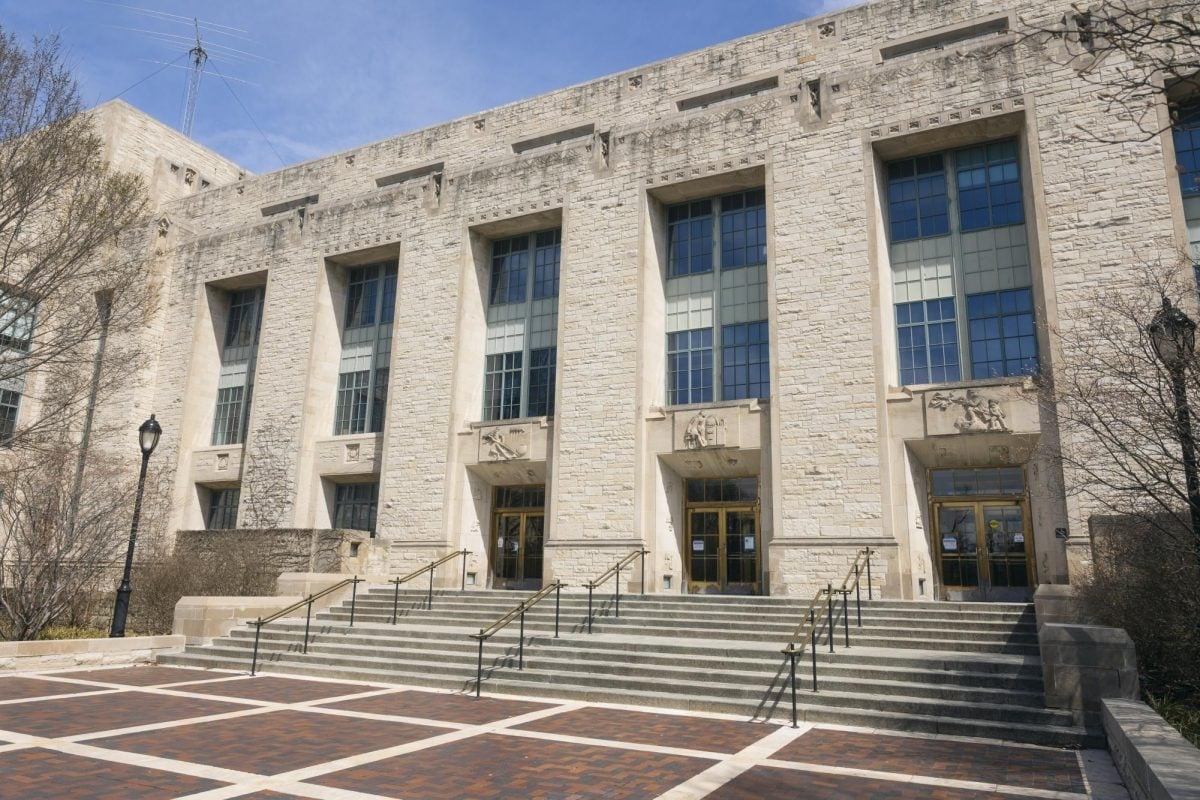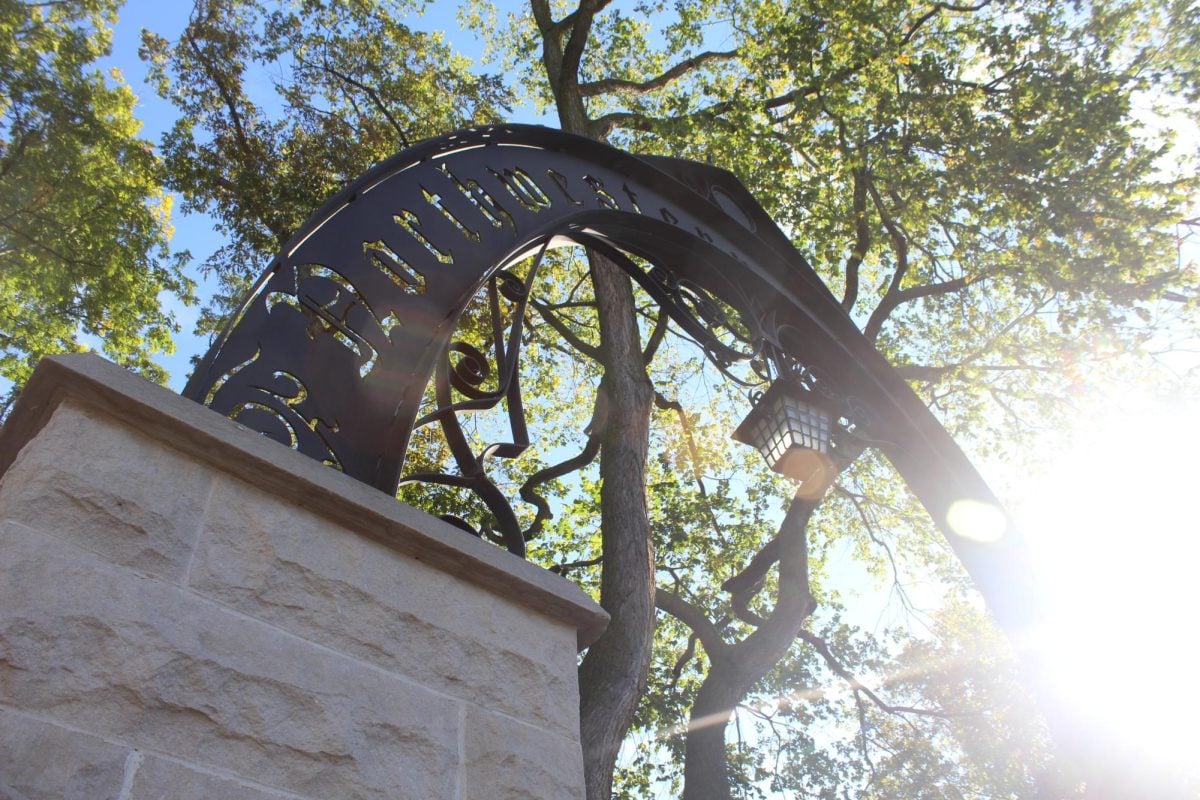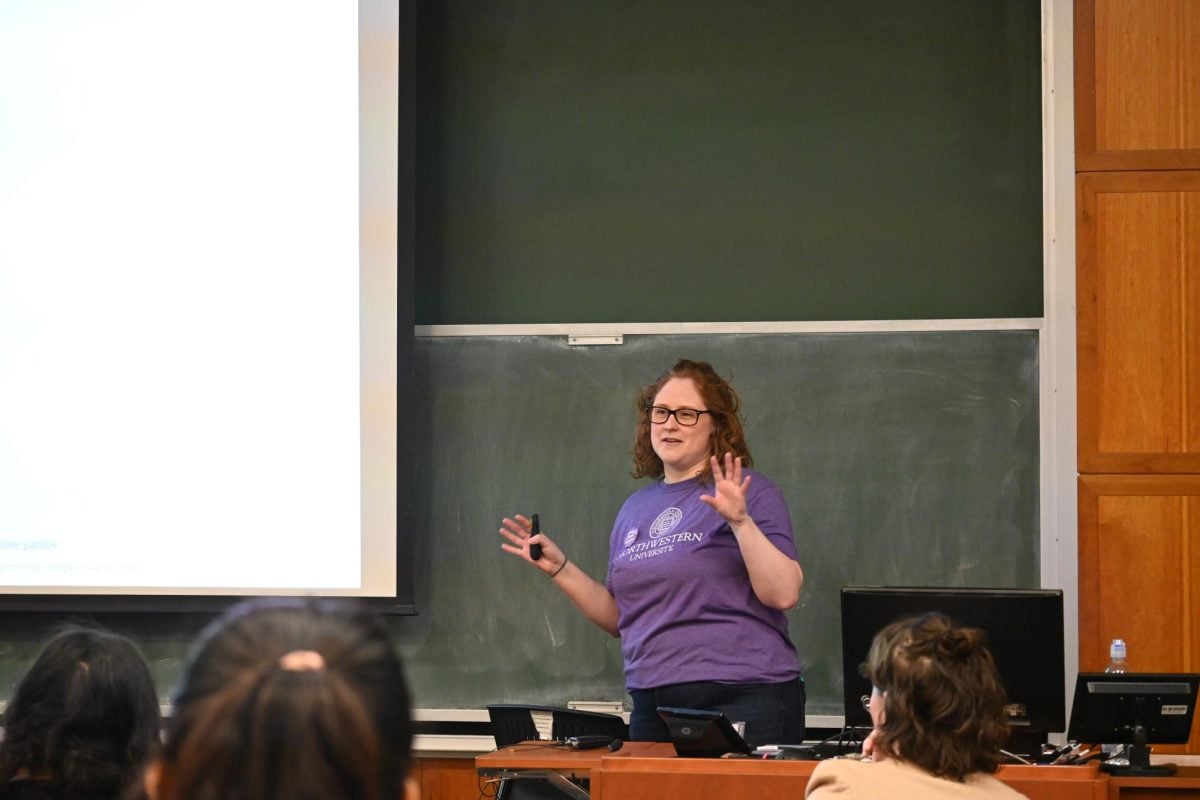If University President Morton Schapiro gets his way, future Northwestern students may take only three classes per quarter, replacing the fourth with a form of “experiential learning,” such as an internship or volunteering program.
Schapiro discussed the change, which he has dubbed “three and e,” at a Tuesday night event with the Northwestern Political Union about the value of a liberal arts education. During the discussion, Schapiro called the current system wasteful of opportunities afforded by the quarter system.
“Let’s take advantage and encourage people to do a whole range of different things,” Schapiro said.
The change would be reflected in the final version of the University’s upcoming Strategic Plan, which will inform a multibillion dollar capital campaign.
Under the plan, potential experiential parts of a student’s education might include volunteering, participating in a marching band, doing an internship or working in a lab, among other activities. University Provost Dan Linzer said one of the challenges with the idea’s implementation would be determining what would “count” as co-curricular activity and what would be considered extracurricular; for example, if club sports would be counted along with varsity sports.
It would also be challenging, Linzer said, for the six undergraduate schools to find space for the experiential programs within their curriculums, all of which now require a student to have at least 45 credits to graduate.
“What would you not require?” he asked. “What would you give up?”
Some students might find it more difficult to double major under the new plan, depending on what it would look like, Linzer said.
The provost wouldn’t predict the likelihood of the idea’s inclusion in the final version of the Strategic Plan, but said the idea was borne of the “teaching and learning” workgroup that helped submit ideas for the plan.
It’s an idea Schapiro has been discussing openly since October, when he said in an interview with The Daily that the idea’s inclusion in the Strategic Plan “could have major curricular implications.”
Linzer said he and Schapiro, who will ultimately decide together if and how “three and e” will appear in the Strategic Plan, found many students and alumni who referred to co-curricular activities as a defining part of their NU experience.
“What if we incorporated into our expectations for students … a real, meaningful, deep, persistent engagement in some area beyond the classroom?” Linzer asked.
The “three and e” idea has not generated “as much enthusiasm” as expected, Schapiro said at the Political Union event.
Barbara O’Keefe, dean of the School of Communication, wrote in an e-mail that the school currently offers many co-curricular opportunities to students. But she added she didn’t know if the school’s faculty would embrace the “three and e” idea.
“I’m not sure how they would react to it,” O’Keefe wrote. “Currently we give credit for internships but not to most of the other co-curricular activities in which students participate. We have been satisfied with our current approach but SoC faculty are usually willing to consider other ideas.”
An expansion of some form of credit for co-curricular activities may be precisely Schapiro’s intention; he’s compared his idea to programs like the Medill School of Journalism’s residency program, where students spend a quarter getting credit for an internship, and the School of Education and Social Policy’s practicum program.
Other schools have similar program, including Weinberg’s Chicago Field Studies program. The assistant director, Karen Allen, said her office of two currently serves about 250 students a year, up from fewer than 100 three years ago.
The McCormick School of Engineering and Applied Sciences offers a co-op and internship program in which students both work and study during their time at NU. Helen Oloroso, the assistant dean of McCormick’s program, said students who participate in the program get to use what they learn in class and gain insight into what profession might suit them.
Fei Yin Luk, a McCormick senior, echoed Oloroso’s sentiment.
“Because it’s hands-on learning, you get to know a material a lot better,” he said.
Though students in the McCormick program have historically alternated quarters of work and class, the next area of expansion for the program will likely be working to offer students internship credit while they take other classes, Oloroso said.
Whether or not a dramatic expansion of the University’s co-curricular offerings will offer students similar experiences remains to be seen. The final version of the Strategic Plan might not be revealed until fall or later.
Allen, of the Field Studies program, said a school-wide implementation of a “three and e”-type plan would be beneficial for many students, especially those who want to participate in Chicago Field Studies but can’t due to academic obligations. The implementation of the new program, if it shows up in the Strategic Plan, will determine whether or not it would be a success.
“The challenge, of course, is in the nuance,” Allen said. “This is Northwestern. We want to continually increase the value of the Northwestern degree.”
Maria LaMagna and Annie Chang contributed reporting







